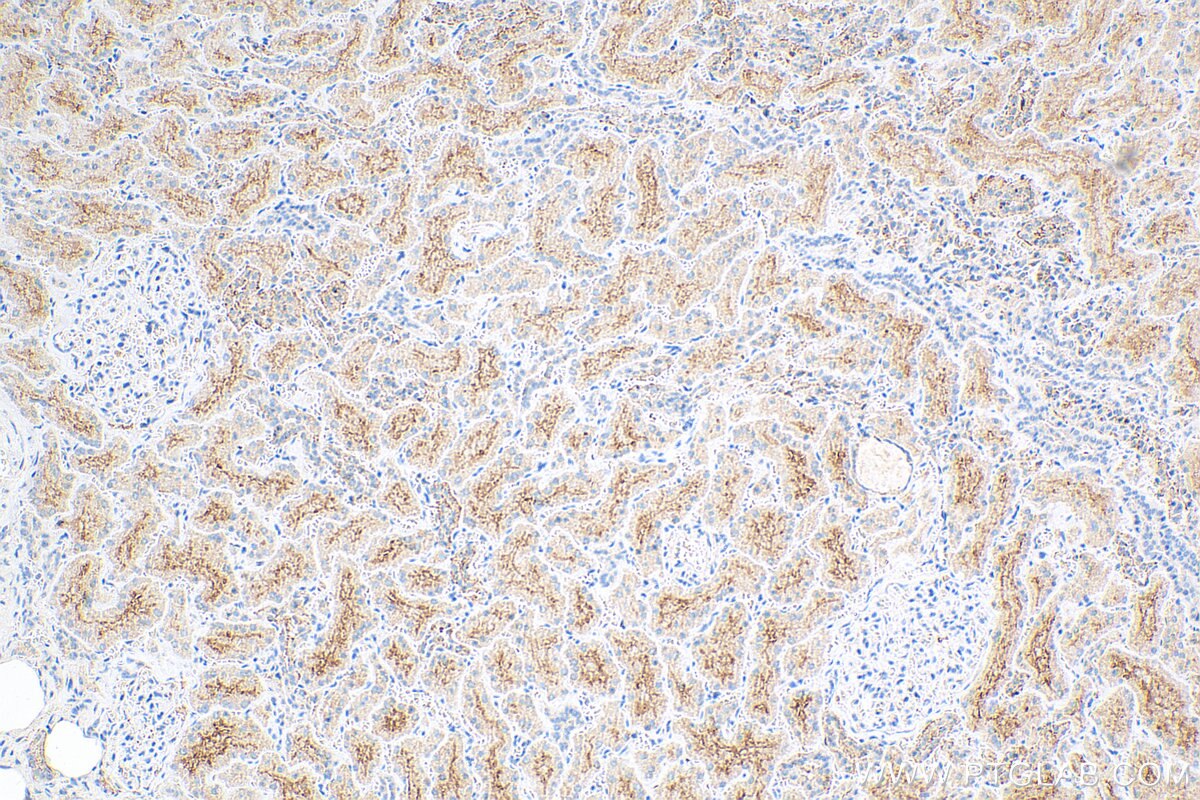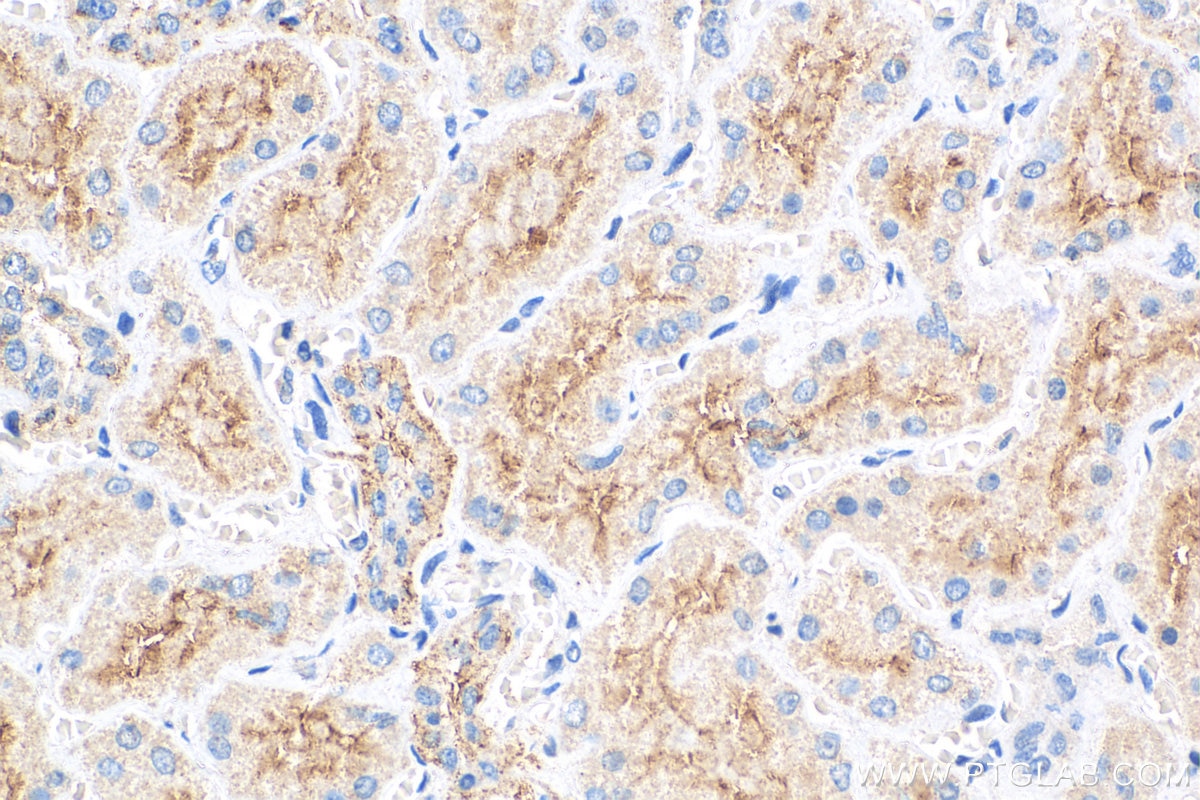MAP17 / PDZK1IP1 Polyclonal antibody
MAP17 / PDZK1IP1 Polyclonal Antibody for IHC, ELISA
Host / Isotype
Rabbit / IgG
Reactivity
human
Applications
IHC, ELISA
Conjugate
Unconjugated
Cat no : 12518-1-AP
Synonyms
Validation Data Gallery
Tested Applications
| Positive IHC detected in | human kidney tissue Note: suggested antigen retrieval with TE buffer pH 9.0; (*) Alternatively, antigen retrieval may be performed with citrate buffer pH 6.0 |
Recommended dilution
| Application | Dilution |
|---|---|
| Immunohistochemistry (IHC) | IHC : 1:50-1:500 |
| It is recommended that this reagent should be titrated in each testing system to obtain optimal results. | |
| Sample-dependent, Check data in validation data gallery. | |
Product Information
12518-1-AP targets MAP17 / PDZK1IP1 in IHC, ELISA applications and shows reactivity with human samples.
| Tested Reactivity | human |
| Host / Isotype | Rabbit / IgG |
| Class | Polyclonal |
| Type | Antibody |
| Immunogen | MAP17 / PDZK1IP1 fusion protein Ag3206 |
| Full Name | PDZK1 interacting protein 1 |
| Calculated Molecular Weight | 114 aa, 12 kDa |
| GenBank Accession Number | BC012303 |
| Gene Symbol | PDZK1IP1 |
| Gene ID (NCBI) | 10158 |
| Conjugate | Unconjugated |
| Form | Liquid |
| Purification Method | Antigen affinity purification |
| Storage Buffer | PBS with 0.02% sodium azide and 50% glycerol pH 7.3. |
| Storage Conditions | Store at -20°C. Stable for one year after shipment. Aliquoting is unnecessary for -20oC storage. 20ul sizes contain 0.1% BSA. |
Background Information
PDZK1-interacting protein 1(PDZK1IP1), also known as MAP17, is a membrane-associated protein. MAP17 / PDZK1IP1 is overexpressed in a variety of human carcinomas, and overexpression of MAP17 / PDZK1IP1 protein is strongly correlated with the progression of prostate and ovarian carcinomas (PMID: 17426052). MAP17 / PDZK1IP1 has been proven to be an oncogene for tumorigenesis and development of papillary thyroid cancer (PTC) (PMID: 36057192; PMID: 35727731).
Protocols
| Product Specific Protocols | |
|---|---|
| IHC protocol for MAP17 / PDZK1IP1 antibody 12518-1-AP | Download protocol |
| Standard Protocols | |
|---|---|
| Click here to view our Standard Protocols |



